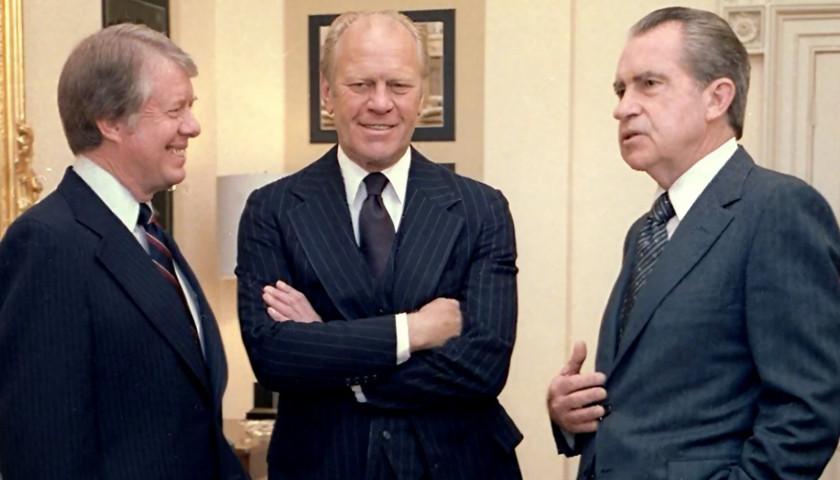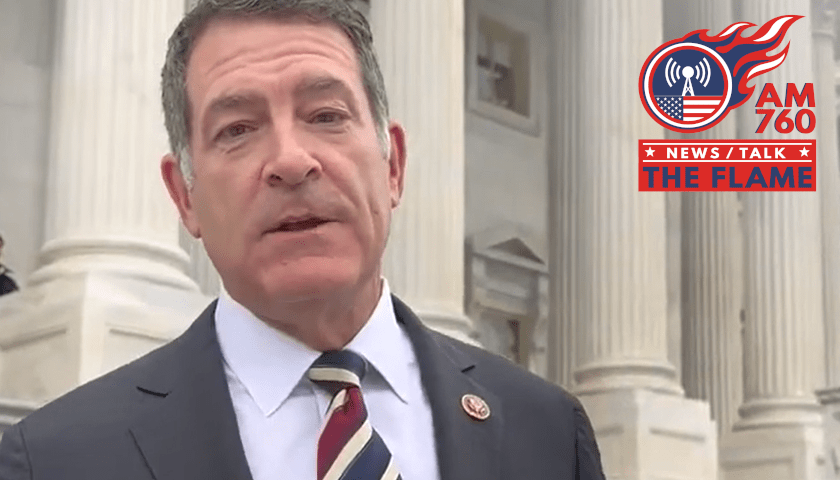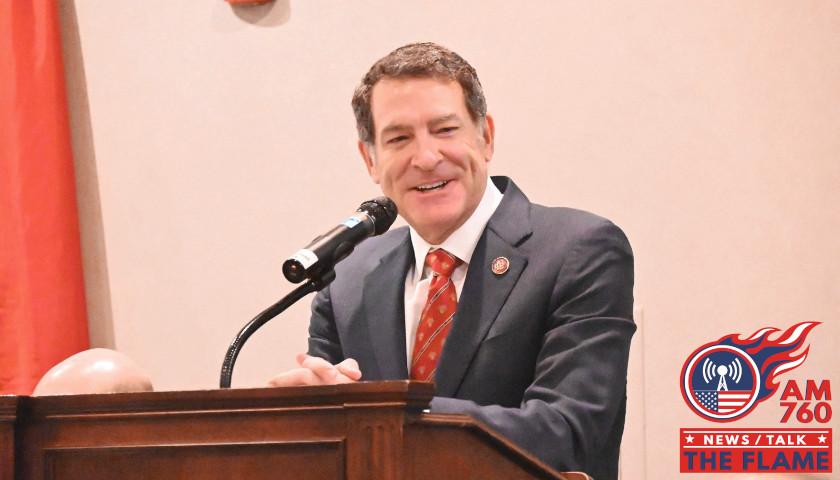by Steve Balch
Sometime during the latter part of the 18th century politics took an unprecedented turn in the English-speaking world: it ceased to be dangerous. Although little appreciated by scholars for its historical consequence, perhaps because it consisted of non-consequences, things that didn’t happen, it was essential to the development of modern democracy. Up to that point, in just about every time and place, politicians who lost high office, or failed in grasping at it, faced the possibility of imprisonment, confiscation, exile or death. Now in Britain and America, then increasingly elsewhere in Europe, and eventually in places even further afield, loss of office, while not pleasant, was no longer lethal.
The knowledge that political failure doesn’t threaten life, limb or liberty, is essential to the stability of constitutional systems. If politicians believe that losing an election means personal disaster, they’ll ensure that it never happens. Since free elections are unpredictable, they’ll be rigged, or their results rejected, or elections abandoned entirely. When John Adams allowed Thomas Jefferson, his (then) bitter political enemy, to enter the presidency unobstructed, and was himself allowed to retire in peace, the American constitution proved it was capable of enduring.
This kind of cross-party indulgence is partly a matter of professional self-interest. Every politician benefits. But given its historical rarity much more must be in place to keep forbearance alive. One is custom. The longer the peaceable transfer of power persists the more it is likely to continue. Just as with other practices, rootedness brings reliance. On the other hand, once it ceases to be settled habit, the resulting insecurity makes it difficult to restore. Once you expect your neighbor to do you in, you’d better do him in first.
Also important are the nature of politics larger stakes. If elections put core social, economic or cultural interests at risk, all bets are off. America’s constitutional architecture starting crumbling when the South’s peculiar institution became the central political issue. The region’s elites eventually saw in Lincoln’s election a line they would not cross. Violence was again in the air when the 1876 presidential election precipitated a showdown over Reconstruction, complicated by the (correct) perception of widespread electoral malfeasance by both Democrats and Republicans.
Contrarily, bipartisan ideological comity softens defeat’s shock, although those at the political fringes may not enjoy the live-and-let-live that prevails among the centrists. Socialist Eugene V. Debs spent the presidential election of 1920 in jail despite commanding almost a million votes.
Ideology aside, big government itself puts political tolerance under strain. The more the interests feed at the government’s trough, the more the pressure on rulers to keep delivering the feast, electoral objections notwithstanding. The welfare state thus planted a destabilizing seed, which Its successor, the social engineering state, has further nourished by making the meal toxic to many of those who have to foot its bill.
These factors have been eroding the foundations of political self-restraint across the Western world. But because of an accompanying lapse in electoral credibility nowhere have power transitions become as fraught than in the United States. In most other Western democracies ballots are collected and counted in a manner widely believed to be honest. In Britain, for example, paper ballots are cast almost entirely in person on a single day and counted constituency by constituency under the close observation of all interested parties. Most other European countries maintain comparable transparency.
In the United States the localization of electoral administration, complicated by machine politics wherever the masses huddle, created enduring, and now spreading, islands of electoral corruption. Because of bloc voting in the electoral college, these political pustules can make the difference in close presidential races. Bipartisan consensus long mitigated the problem. Did Nixon really lose Illinois and Texas in 1960? The daylight between him and JFK was just too small for Republicans to go to the mat over it.
Those days are gone. Ideological dissensus and an imperial national executive combine with campaign manipulation and electoral opacity, to make it increasingly hard for America’s losers to accept defeat. On the relatively disempowered right the reaction has by necessity been limited to angry rhetoric and scattered protest, which, on January 6, 2021, boiled over into dramatic trespass and scattered violence within the hallowed halls of Congress. On the entrenched Left the reaction has been far more sinister: the return of politics to its immemorial status of blood sport, power severed from law to do in opponents.
The blast of prosecutions against Donald Trump and his cohorts, the targeting of other Administration opponents from small fry pro-lifers to titans like Elon Musk, are now demolishing the wall that long sheltered political difference from the penal code. This criminalization of politics means that If Trump, or any other red-blooded Republican, were in spite of everything to recapture the presidency, a host of bigwigs in the White House, federal law enforcement and Congress will themselves face prosecution. Will they allow this disaster to fall upon them? If not, what are they prepared to do during the campaign, the vote casting, the vote counting, or pre-inauguration run-up to prevent it? Rule or ruin politics raise these questions.
Is there a way out of this minefield? If there is it will involve both resolve and circumspection.
First, if and when constitutionalists retake power, they’ll need to enact a national election law that makes outcomes as unambiguous as is humanly possible. Constitutionalists naturally shy away from this, but there’s no longer any choice. We need elections that the Left can’t juggle, and the present system, if a system it can be called, doesn’t provide them. A national system involving in-person balloting, unassailable proof of voting eligibility, public and replicable counting, a radically shortened period of casting, and rapid and simultaneous announcement of results must be established. Our system is too fragile to survive more implausible results, and if we don’t tighten it the Left, as soon as it can, will use national power to make voting even more chaotic and subvertible.
Second, the rule of law won’t be restored by turning a blind eye to its current savaging. Yet the response can’t be too sweeping or vindictive. The “Good Germans” at lower administrative levels, those who just followed orders, should be demoted, rusticated or dismissed but, generally speaking, not prosecuted. Nor should laws be stretched to catch those who merely lied and defamed even when they are patently obnoxious. Their punishment should be left to politics. When Charles II was restored to the English throne part of the bargain was an “Act of Oblivion,” forgetting – if not forgiving – past malefactions short of regicide. It worked.
Excepting the most culpable individuals where it should be conspicuous and exemplary – the DOJ and Homeland Security in particular have been functioning as criminal conspiracies with seats in the cabinet – the real reckoning should be institutional not personal, demolishing bad agencies and, where necessary, rebuilding them from the ground up. Determining whom to rehire and whom not, would make for a powerful, if non-judicial, form of condign punishment. The Left is full of vengeance seekers, punishing for punishment’s pleasure. Constitutional redemption requires that those kinds of perverse satisfactions be foresworn.
Third, woke fanaticism must be dampened. Violent protest – genuine sedition - needs be given its whiff of grapeshot, its practitioners ignominiously chased off the streets and into prisons. Incarceration for them, their behind-the-scenes promoters, together with more ordinary criminal types, would send a forceful message and eliminate the tinder the Left so likes to ignite. Mobs will vanish when mobbing is disincentivized.
Wokeness’ ultimate source lies in our universities which, outside STEM, should be drastically defunded along with the public-school systems the universities have taken in tow. Education reform will need time to show results. In the meanwhile, it will be a matter of manning all the other pumps to keep the republic afloat.
Humans fight fire with fire, eye for eye and tooth for tooth. Once elections are compromised and losing is criminalized a vicious circle sets in rendering politics warfare by other means. We may not have entirely reached that point, but we’re perilously close. Assuming power is still ours to regain we’ll need some consummate and fearless statesmanship to steer it clear.
– – –
Steve Balch is a contributor to American Greatness.






No….. There are consequences for stealing elections..
While “political enemies retiring in peace” is necessary for the preservation of the Republic, I’m afraid it’s not sufficient. They who obtain power must be held to much more stringent conditions. Paramount among them is absolute fidelity to the terms of the Constitution. No more dismissing its explicit requirements because “this is an emergency” or similar tripe! And contriving mechanisms that will bring about and perpetuate that state of grace is a three-pipe problem.